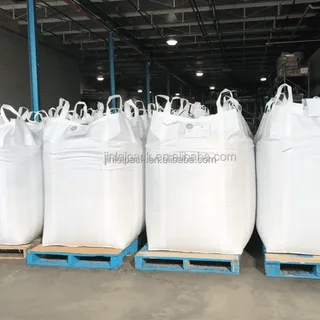Industrial Plastic Bags Market adapting to strict environmental regulations worldwide

Introduction
The Industrial Plastic Bags Market is rapidly adapting to strict environmental regulations worldwide. With increasing pressure from international bodies, national governments, and environmental watchdogs, the market is being reshaped by mandates that promote sustainability, reduce plastic waste, and encourage the adoption of eco-friendly materials.
Global Regulatory Landscape
Several countries have introduced stringent legislation targeting plastic pollution and waste management. These laws are not only focused on consumer goods but also extend to industrial packaging materials. The European Union’s directive on single-use plastics, India's Plastic Waste Management Rules, and bans on certain plastic categories in U.S. states are just a few examples.
These regulations are prompting industries to reconsider their packaging strategies. Companies now seek industrial plastic bags that comply with compostability, recyclability, or biodegradability standards—without compromising product safety or operational efficiency.
Impact on Manufacturing Practices
To meet the regulatory requirements, manufacturers are redesigning their production lines to support sustainable inputs and eco-friendly outputs. This includes:
-
Switching to bio-based or recycled polymers: Reducing the reliance on virgin plastic resins.
-
Certifying products for compliance: Many businesses now require EN 13432 or ASTM D6400 certification for compostable bags.
-
Redesigning for recyclability: Simple, mono-material bags are replacing complex multi-layer formats to improve recycling potential.
Manufacturers are also adopting energy-efficient and low-emission technologies in the production of industrial plastic bags to meet environmental compliance at both national and international levels.
Sector-Wise Adaptations
Different sectors are adapting to environmental regulations in unique ways:
-
Food and Beverage: Switching to food-grade biodegradable bags that meet health and safety as well as sustainability standards.
-
Pharmaceuticals and Chemicals: Using recyclable, tamper-proof bags that are free from hazardous additives.
-
Logistics and Warehousing: Implementing closed-loop bag reuse systems to reduce single-use dependency.
These sector-specific strategies showcase how deeply the market is being influenced by environmental governance.
Innovation in Sustainable Alternatives
Strict regulations are accelerating innovation. Industrial plastic bag manufacturers are exploring materials and technologies that allow products to meet environmental rules while enhancing utility.
Emerging materials include:
-
PLA (Polylactic Acid): A compostable plastic made from corn starch, suitable for lightweight and short-term packaging.
-
PBAT (Polybutylene Adipate Terephthalate): A biodegradable plastic that mimics traditional plastic flexibility and toughness.
-
Recycled polyethylene (rPE): A cost-effective and sustainable solution offering similar strength to virgin plastics.
These innovations not only help with compliance but also reduce long-term costs through resource efficiency and waste reduction.
Challenges in Regulatory Compliance
Adapting to regulations is not without hurdles. Many regions lack consistent definitions for what qualifies as “biodegradable” or “compostable,” creating uncertainty in international trade. Additional challenges include:
-
High costs of eco-certified materials compared to traditional plastics.
-
Limited access to advanced recycling and composting infrastructure in emerging economies.
-
Variations in policies across countries, which complicate standardization for multinational corporations.
Despite these challenges, the market is steadily moving toward harmonized, globally accepted environmental practices.
Role of Industry Collaboration and Certifications
Collaboration is crucial for navigating regulatory changes. Manufacturers are partnering with environmental organizations, research institutions, and compliance bodies to stay updated and innovate accordingly. Key global certifications driving market credibility include:
-
OK Compost (by TÜV Austria)
-
USDA Certified Biobased Product
-
Blue Angel (Germany)
-
Cradle to Cradle Certification
These certifications provide transparency and help businesses build consumer trust in their sustainability efforts.
Future Market Dynamics
As environmental policies continue to evolve, the industrial plastic bags market will see a shift from reactive compliance to proactive innovation. Companies that invest in environmentally responsible manufacturing today will gain a long-term competitive edge.
In the coming years, governments are expected to incentivize green packaging through tax benefits and subsidies. Simultaneously, stricter penalties for non-compliance will discourage the use of traditional, non-degradable plastics. This dual pressure will fuel further innovation and drive sustainable market growth.
Conclusion
Environmental regulations are no longer just an external influence—they are shaping the very core of the industrial plastic bags market. The transition to eco-compliant packaging is essential for long-term success. As innovation and policy align, the market is poised to deliver greener, smarter, and more responsible solutions for industrial packaging needs.
- Art
- Causes
- Crafts
- Dance
- Drinks
- Film
- Fitness
- Food
- Games
- Gardening
- Health
- Home
- Literature
- Music
- Networking
- Other
- Party
- Religion
- Shopping
- Sports
- Theater
- Wellness


